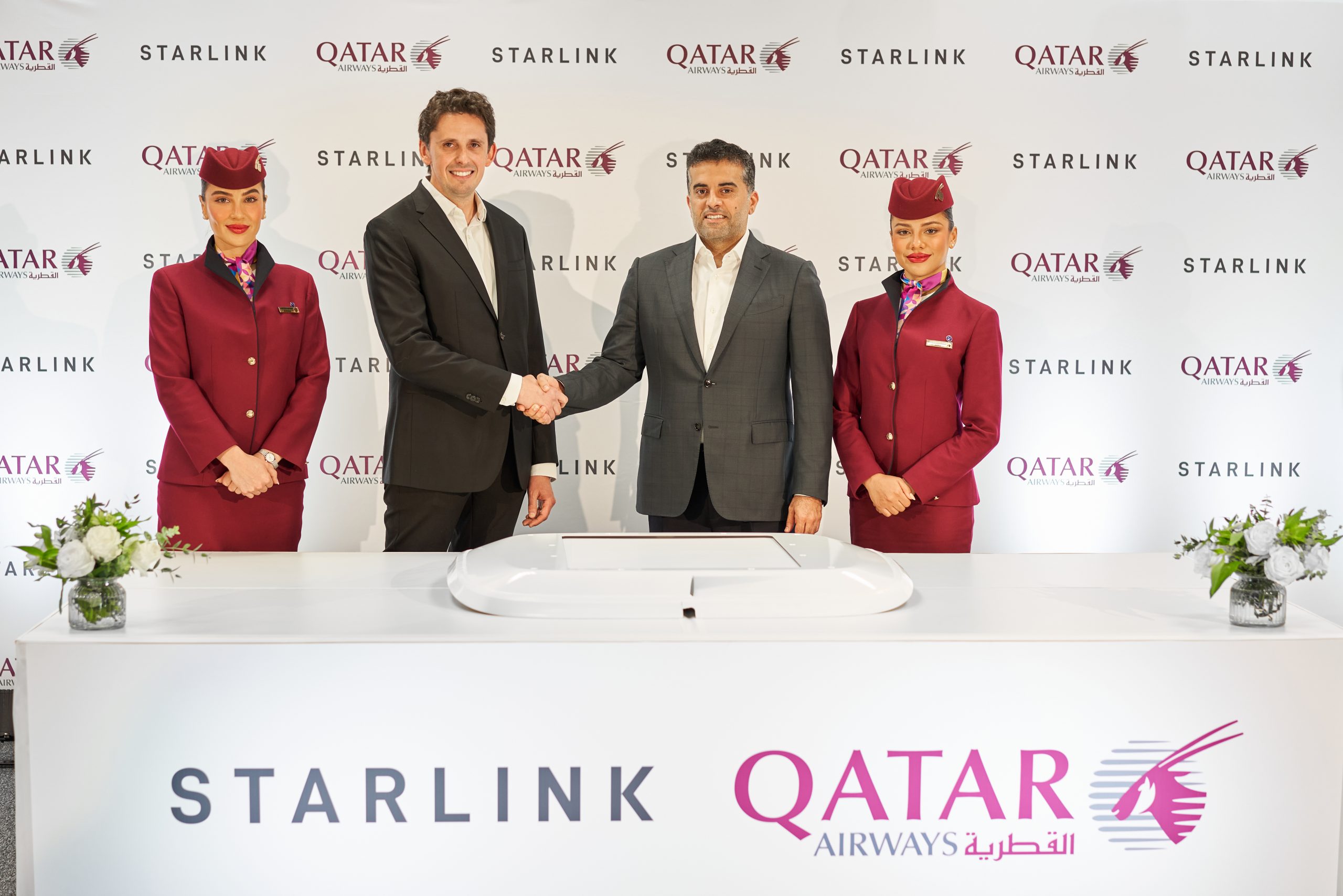Musk’s satellite system, operated by his aerospace company SpaceX, provides internet access from the sky rather than relying on conventional fiber-optic wire networks on the ground.
Qatar Airways and Elon Musk’s Starlink are set to provide unlimited complimentary on-board Wi-Fi under a new partnership, the first of its kind in the Middle East and North Africa region.
The major announcement took place on Wednesday at the Aircraft Interior Expo, held in Hamburg, with the presence of Qatar Airways Group CEO, Badr Al-Meer, and Mike Nicolls, the Vice President of Starlink Engineering at SpaceX.
“As the first-ever service of its kind in the MENA region, the collaboration with Starlink, the world’s largest satellite internet constellation engineered and operated by SpaceX, marks a new milestone for the national carrier of the State of Qatar,” Al-Meer said.
The partnership entails providing ultra-high-speed Wi-Fi connectivity of up to 500 megabit per second per plane, providing passengers with easy access to internet-based services.
The service will debut on three Boeing 777-300 aircrafts within the fourth quarter of this year, and comes as part of the Qatari flag carrier’s efforts to upgrade its technologies over the next two years, the airline explained.
“High-speed, low-latency internet is the future of aviation connectivity, and we’re excited to work with Qatar Airways to start flying Starlink on their fleet by the end of this year. Soon, all Qatar Airways passengers will be able to enjoy all the benefits of the world’s best in-flight connectivity,” Nicolls said.
Starlink had started launching its satellites in 2019 under its plan to create a network of satellites to provide high-speed sky-based internet.
Musk’s satellite system, operated by his aerospace company SpaceX, provides internet access from the sky rather than relying on conventional fibre-optic wire networks on the ground.
The tech mogul’s company provides internet access with the help of existing satellites, making it more accessible to people globally without the need for a physical infrastructure.
The internet service requires thousands of satellites to ensure proper connectivity. SpaceX placed its 6,000th Starlink satellite in orbit on May 17, with future plans to boast a total of 12,000 to complete its constellation.







